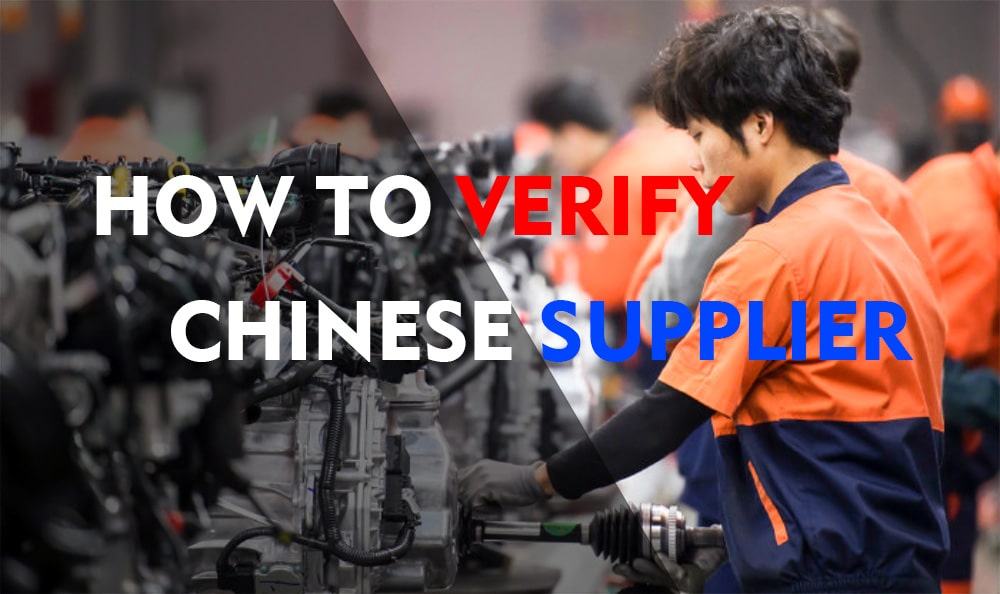
As more and more people seek to source from China, verifying Chinese suppliers is becoming an increasingly important factor to consider. For most importers, this is a tricky part of the process.
How do we verify Chinese suppliers to ensure they are legitimate?
In this article, I will explain how to use a Chinese business license to check if your supplier is legitimate. And also, I will give you some ideas on how to distinguish if they are a factory or a trading company.
Why Should I Verify Chinese Suppliers?
Before dealing with a potential supplier, trading company, or manufacturer in China, it is crucial to confirm their background details to test their reliability.
Conducting background checks on potential business contacts is probably the most important thing you need to do before signing any contracts or making any payments to check if they are genuine.
Many Chinese suppliers claim they are factories, but their operation mode points to other parties. That is why you need to verify them to prevent being scammed.
Choosing the right supplier is critical to your business. Here are some reasons why you must verify Chinese suppliers:
Reason 1. Prevent scams
Scams are a major problem for businesses of all sizes. Some of our clients have been scammed by unscrupulous suppliers and faced losses.
This is because scammers and fraudsters are likely to try to pose as legitimate companies to defraud unsuspecting buyers.
In this case, verifying the supplier will show if there is a real company behind the registration information.
Reason 2. Ensure you are working with the right suppliers
Taking time to verify your suppliers can also help your business build strong supplier relationships. Why is a strong supplier relationship important?
Working with a reliable and honest supplier can provide your business with the following benefits:
- Lower costs
- Less quality control issues
- Faster and more efficient supply chain
- Find mutually beneficial solutions when problems arise
- Reduced staff fatigue
In short, it will help you ensure a seamless supply chain that minimizes downtime and keeps your customers happy. You can closely monitor the performance of your suppliers and adjust your production accordingly.
Reason 3. Reduce risk
Working with a reliable supplier is necessary for many small businesses because it can reduce risks that are largely beyond your control. In contrast, an unreliable supplier can cause problems throughout your supply chain.
So, if you take the time to verify that you are working with a reputable supplier, these actions can help you increase your profits and gain an advantage over your competitors.
4 Common Ways to Verify Chinese Suppliers

The verification process is integral to the business relationship with suppliers and manufacturers in China. Here are 4 common ways to verify Chinese suppliers:
1. Ask questions professionally
All business must start with communication. When talking to your suppliers, always keep a sense of professionalism and let them know that this is not your first time importing from China.
In your inquiry, you should ask for the following:
- Contact person name
- Email address
- Phone number
- Fax number
- Company address
- Company registration number
- Business license number
- Bank Name
- Beneficiary
Tips: This information ensures that the company’s bank account name matches. Usually, the supplier has a bank account in Hong Kong, which benefits financial transactions.
For example, if the supplier’s name is Shenzhen Toy Import & Export Ltd, it should match the bank account also.
Also, many scammers offer attractive prices to lure potential companies into doing business but end up scamming them out of their money.
You should make a comparison sheet and check prices with other companies. Then, use common sense and pay attention to all the details of the offer you receive.
2. Do background check
a. Check their business license
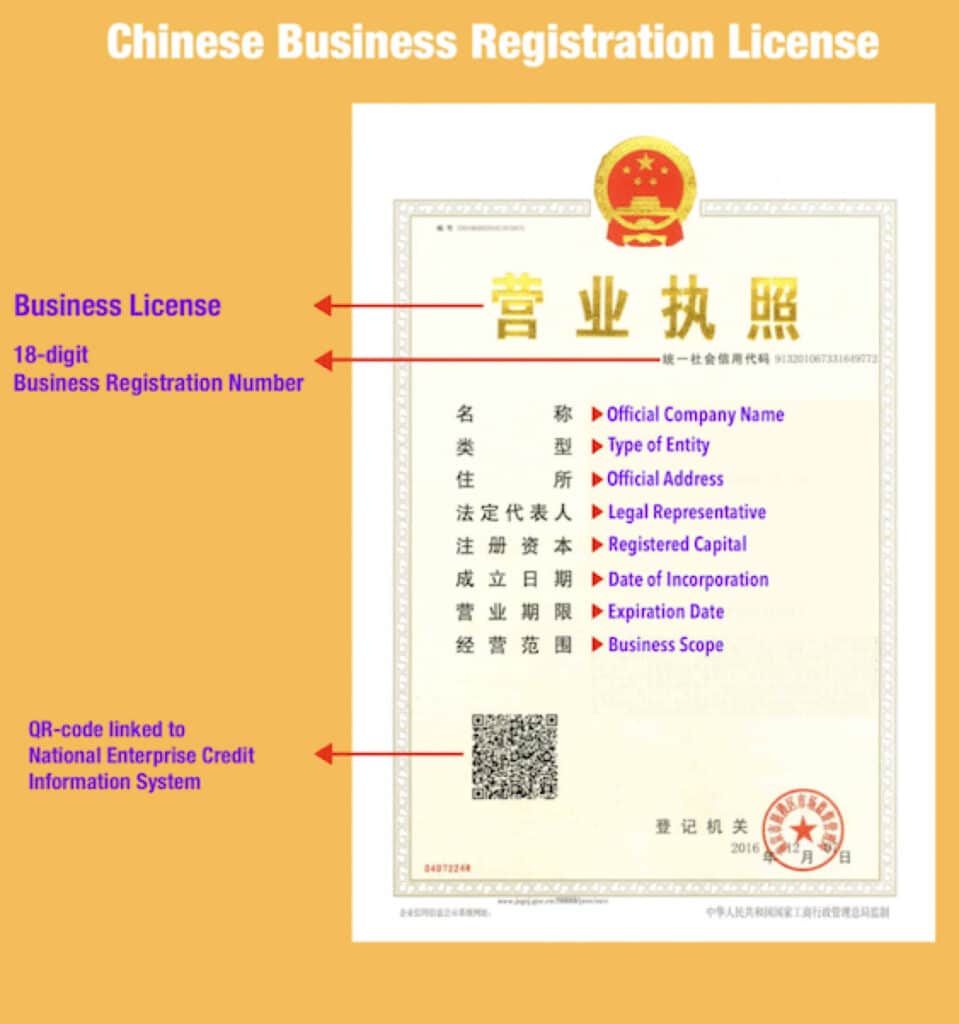
In China, every company needs to have a government-issued business license. This is not a secret document.
The company is required by law to display its business license in a conspicuous place. To verify that your supplier is legitimate, it is a good idea to ask for their business license.
The business license is usually the first step when verifying a Chinese supplier. You may find a company unwilling to show its business license when you ask for it. If this is the case, then something may not be right.
b. Check other credentials they claim to have
Before placing an order, ask the supplier to provide you with the certificates he claims to have. For example, if he claims to have a CE or FDA certificate for a particular product, I would like to see a soft copy (PDF).
Sometimes, the supplier won’t be able to send you the full test report/certificate because it was requested and paid for by their customer. That’s fair enough, but he can obscure some information and send you a screenshot.
However, the test reports/certificates are often under the supplier’s name. Once receive these soft copies, you can contact the third party that issued the certificate.
For example, when you receive an FDA report for a project, you can contact the third party who issued the report, provide them with the test report number and ask for its validity. You can also find contact details on most test reports.
Usually, the third party will do this for free (confirm the validity). Once they confirm the validity, you can continue to work with that supplier with certainty.
However, it is not uncommon for some suppliers to falsify their certificates and test reports, and once you contact a third party, they never heard of the test report. Stay awake and eliminate this supplier immediately.
3. Factory audit reports
Many times, audits are done by other customers, and the supplier may not send you a full report. However, a screenshot with blurred areas will do.
If they can send you a full report, look for the following details:
- When was the factory audited?
- What were the results of the audit or the main issues?
- Has the supplier improved on these issues since then?
- Were there any significant findings? (e.g., child labor issues)
Once you have completed your research on the audit report, you should have a pretty good understanding of the supplier.
Then you can move forward based on your findings, place an order, or move on to the final step.
4. Third-party inspection company
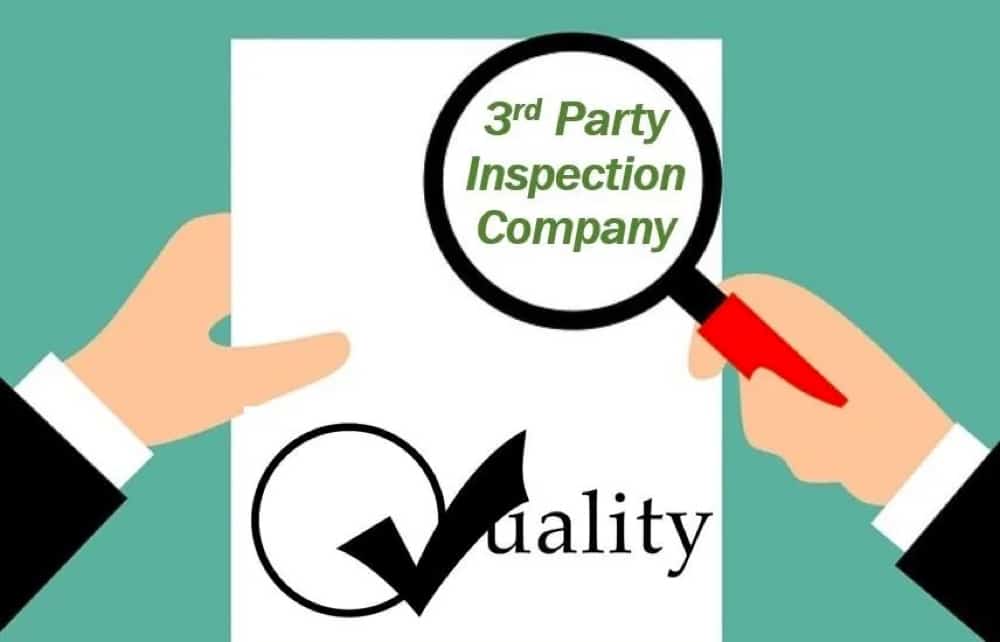
Get and understand supplier information to evaluate their reliability and properly choose the right supplier for you.
However, these methods require a lot of time and effort to collect data. You will need a third party’s involvement to make importing goods from China easier.
These audits are paid services like factory audits before placing an order. In these audits, the third party will conduct thorough factory research based on standards you can help determine.
There are also third-party agency services for quality control inspections after placing an order, and they can offer the following:
- Manufacturing inspections
- During manufacturing, determine if the process meets the buyer’s specifications.
- Production monitoring
- During the production of the goods, monitor the materials used, labor, and environmental conditions.
- Pre-shipment inspection
- Do inspection after the goods are finished or while the goods are in stock before shipment.
The quality inspection company will verify all stages of importing goods from China, from sourcing suppliers and their audits to the manufacturing process, and identify product defects before the shipment.
You must be clear on this point, and it is essential to perform quality checks on every order from Chinese suppliers, as there is always the possibility of getting some defective items.
And after goods are imported and then found quality problems in your country, you often can’t return them. Even the issue of getting a refund becomes very complicated.
Of course, it is better to fly to China and visit the factory yourself, but you need to consider the number of resources available. Experienced quality checks can help you to be done better in China.
So, the involvement of third-party institutions is necessary and almost critical when importing goods from China.
Yansourcing can assist you and verify Chinese suppliers. Learn More about our services on our website: https://yansourcing.com/
How to Verify Chinese Suppliers Using Business Licenses?

In China, each business license is issued by a local branch of the Administration for Industry and Commerce (AIC). It is an official certificate that a Chinese company is registered with the authorities and operating legally.
Business licenses in China are published in Chinese only. You can use “Google Translate” on your phone to translate the contents of the business license image into English.
Please note that this machine translation may give you good enough information but may not be exact. To ensure the content of the license, you can use a human translation service to get more accuracy.
1. 18-digit Chinese business registration number
This unified business registration number provides useful information about the company as follows:
- 1st digit – Registration Authority
- 2nd digit – Type of entity
- 3rd-8th digits – Registration area
- 9th-17th digit – Organization Code
- The last digit – Check code
2. Chinese name of the company
When registering, companies can choose only Chinese or both Chinese and English names. In China, most companies register only the Chinese name and will not officially register an English name.
However, you may find many English company names on buying platforms, such as Alibaba. These are their unofficial name.
3. Type of entity
4. Official address
This is the company’s registered address, which may be different from their factory address.
5. Legal representative
This is the name of the person who legally represents the company. This is usually the owner or co-owner of the company.
6. Registered capital
Depending on the type of company, the registered capital can be as low as 10,000 RMB or as high as 20 million RMB or more. For example, a small trading company may register relatively low capital, but a large manufacturing company may register with substantial capital.
7. Registered date
Generally, doing business with Chinese suppliers that have been in the market for at least 2-3 years is good.
8. Expiration date
9. Business scope
The scope of operations defined on the business license covers what a company is legally allowed to do. The business scope is usually very specific. Anything not mentioned in the scope of operations is considered illegal.
For example, it may include “manufacture and trade in electrical equipment” and “do not trade in items subject to license approval”. However, if the company provides services beyond this scope of business, then you should consider this a red flag.
10. QR Code
You can scan the QR code and see the company’s details in the National Enterprise Credit Information Publicity System (NECIPS) official government database. Cross-check all the details in the database to see if they are the same as those mentioned on the business license you received from the company.
Once you see the information above, you can follow these steps to verify Chinese Suppliers:
Step 1: Go to the NECIPS website
The first step is to navigate to the website of the National Enterprise Credit Information Publicity System: http://www.gsxt.gov.cn
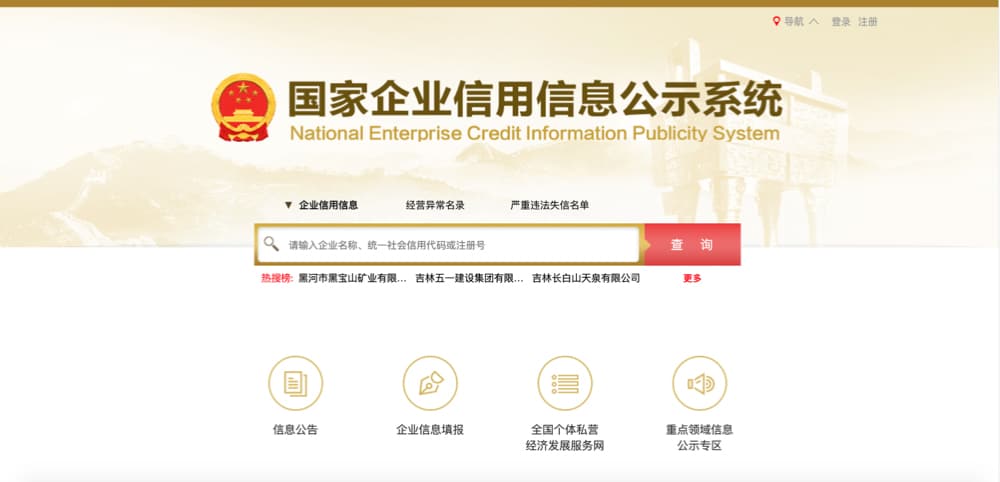
Step 2: Enter 18-digit business registration number
Once you reach the website, you must enter your supplier’s business registration number.
Step 3: Fix the puzzle
Before you start your search, the system will ask you to solve a simple puzzle. This could be anything from a crossword puzzle, marking the difference between two pictures, or in our case, dragging a puzzle piece into the right place.
Step 4: Select search results from the list
After solving the puzzle, you will see the search results appear. If you have entered the correct business registration number, there should be only one result.
If you see information that matches your supplier, congratulations, you can continue to see all the information for that supplier.
In short, verifying the business license is usually the first step when conducting due diligence on a Chinese company. It allows you to verify that the company is legitimate and not a scam.
How to Verify Chinese Suppliers Are Factories Or Trading Companies?
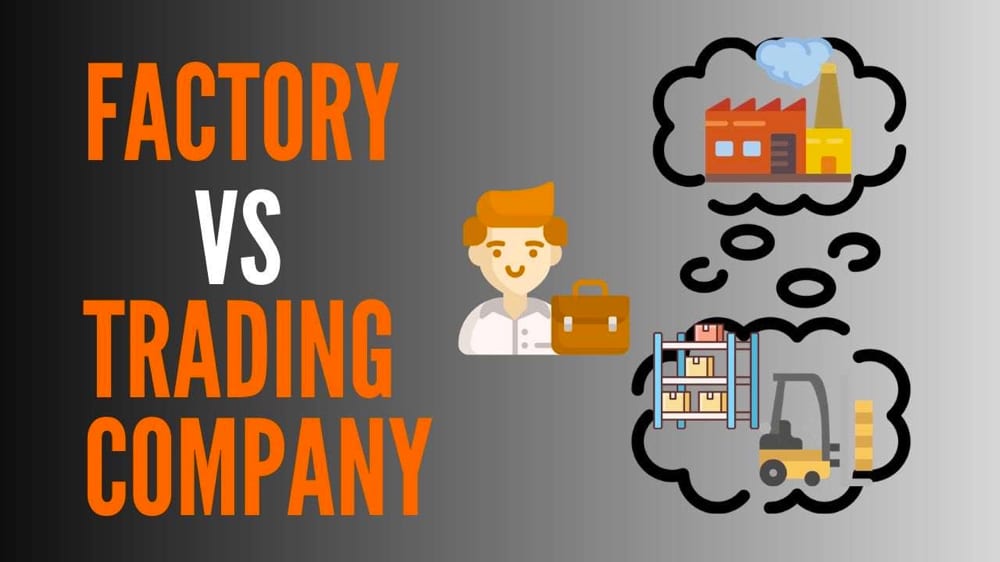
Many Chinese suppliers like to say they are factories because customers prefer to buy directly from the factory to avoid paying intermediate costs.
However, many suppliers they are just trading companies, which makes it more difficult to verify if a Chinese supplier is a factory.
To verify the nature of the supplier, here is a list of some simple ways to find out the identity of the supplier you are dealing with:
1. Check the business license
If you want to verify the supplier’s identity, you may check the scope of business on the business license.
Checking a company’s scope of operations is one of the most straightforward ways to determine if you’re dealing with a factory or trading company.
Factories usually have the words “manufacturing or production” in their scope of operations. Therefore, it should be easy to identify this on their business license. If the supplier does not have one, it is not a factory.
2. Check their value-added tax (VAT) invoice
A factory can give you a 17% VAT invoice to apply for an export tax rebate, which the Chinese government allows because it encourages exports.
The trading company must have the VAT invoice if it wants a tax rebate. However, only the factory issues this invoice. So, they are not a factory if the supplier can’t give you this.
You may learn more on our blog for Export Tax Rebate for details below:
What is Export Tax Rebate in China? What are the Benefits for Exporters?
And you need to know that the company name on the VAT invoice is qualified and matches the name on their business license.
3. Check the supplier’s MOQ
If you deal with factories, you will realize that factories usually have a higher MOQ and can’t bargain because they offer an MOQ that allows them to break even.
However, trading companies are open to negotiation, and MOQs are flexible.
4. Check the product catalog
Since factories specialize in one or multiple products, remember that factories are specialized.
Therefore, if you find that your supplier lists many products in their catalog, it means that you are working with a trading company. This is because the trading company has a more comprehensive catalog than the factory.
5. Check the factory’s audit report
Suppose the supplier has supplied to other large companies. In that case, you should ask them to send you factory audit reports from those companies if they can provide a soft copy of the report indicating that they have done so.
If the company’s name on the report matches the name on your business license, you know you are dealing with a factory.
6. ISO 9001 certification
Most factories have this certification. Trading companies may not be able to get this because they don’t need it. This will be able to validate a factory from a trading company.
However, it is important to note that some trading companies have this certification. Most certified trading companies focus on a single product category and have a solid relationship with the factory.
7. Location of suppliers
China has a way of operating factories. There are unique industrial zones for all products manufactured in China. That is, there are specific locations where most of the production of a particular product takes place.
If the supplier you are dealing with is not part of the area where such products are produced, then it is a trading company, not a factory.
Verify Chinese Suppliers Conclusion
Doing business with a Chinese company or supplier requires due diligence. You should properly check and verify these suppliers to see if they are like what they say.
You definitely don’t want to work with an unreliable supplier that often provides poor quality products or late shipments.
If you would like more information on what you need to verify Chinese suppliers, please leave a comment below.
We are Yansourcing, a leading sourcing agent in China. If you are looking for international trade but do not have any experience importing or customizing products from China, please do not hesitate to contact us!
